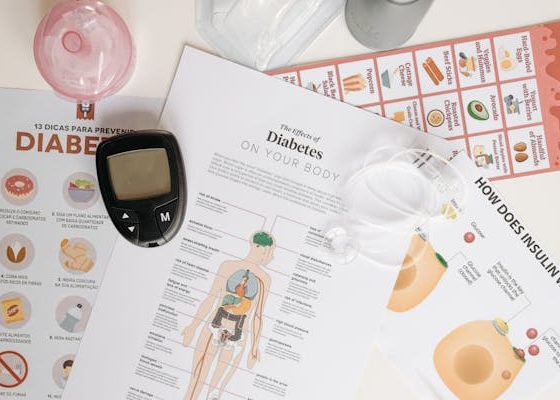
In today’s fast-paced world, maintaining a healthy lifestyle can seem daunting. With a multitude of conflicting advice, busy schedules, and various distractions, finding a balanced and sustainable approach to health is essential. This article provides detailed tips for a healthy lifestyle, covering nutrition, exercise, mental well-being, sleep, and social connections. By integrating these tips into your daily routine, you can enhance your overall well-being and lead a fulfilling life.
Tips for a Healthy Lifestyle
1. Prioritize Balanced Nutrition
A balanced diet is foundational to a healthy lifestyle. Nutrition impacts every aspect of our health, from physical energy levels to mental clarity and emotional well-being.
Eat a Variety of Foods: Incorporate a wide range of foods into your diet to ensure you get all essential nutrients. Include fruits, vegetables, whole grains, lean proteins, and healthy fats.
Control Portion Sizes: Overeating, even healthy foods, can lead to weight gain and other health issues. Use smaller plates, pay attention to hunger cues, and avoid eating out of boredom or stress.
Stay Hydrated: Water is vital for every bodily function. Aim to drink at least eight 8-ounce glasses of water a day, and more if you are active or live in a hot climate.
Limit Sugar and Processed Foods: Excessive sugar and processed foods contribute to weight gain, diabetes, and other chronic diseases. Opt for whole foods and read labels to avoid hidden sugars.
Eat Mindfully: Take time to enjoy your meals without distractions. Eating slowly helps with digestion and allows you to recognize when you are full.
2. Engage in Regular Physical Activity
Exercise is crucial for maintaining physical health and mental well-being. Regular physical activity helps manage weight, reduce the risk of chronic diseases, and improve mood.
Find an Activity You Enjoy: Consistency is key, so choose activities you enjoy. Whether it’s running, swimming, cycling, yoga, or dancing, find something that keeps you motivated.
Incorporate Strength Training: Building muscle is essential for metabolism and overall strength. Include strength training exercises at least twice a week.
Stay Active Throughout the Day: Even if you exercise regularly, staying active throughout the day is important. Take breaks to stretch, walk during lunch breaks, or use a standing desk.
Set Realistic Goals: Set achievable fitness goals that are specific, measurable, attainable, relevant, and time-bound (SMART). This approach keeps you motivated and tracks your progress.
Listen to Your Body: Pay attention to how your body feels during and after exercise. Rest when needed and avoid pushing through pain to prevent injuries.
3. Focus on Mental Well-being
Mental health is as important as physical health. It affects how we think, feel, and act, and it determines how we handle stress, relate to others, and make choices.
Practice Mindfulness and Meditation: Mindfulness and meditation reduce stress and improve focus. Spend a few minutes each day practicing mindfulness or meditation techniques.
Stay Connected with Loved Ones: Strong relationships enhance emotional support and reduce feelings of loneliness. Make time for family and friends, and communicate openly about your feelings.
Seek Professional Help When Needed: There is no shame in seeking help from a mental health professional. Therapy can provide valuable tools for managing stress, anxiety, depression, and other mental health issues.
Engage in Hobbies and Leisure Activities: Hobbies and leisure activities provide a sense of joy and fulfillment. Whether it’s reading, gardening, painting, or playing an instrument, make time for activities you love.
Practice Gratitude: Gratitude has been linked to increased happiness and reduced stress. Keep a gratitude journal and write down things you are thankful for each day.
4. Ensure Adequate Sleep
Sleep is a crucial component of a healthy lifestyle. It affects our physical health, mental well-being, and overall quality of life.
Establish a Sleep Routine: Go to bed and wake up at the same time every day, even on weekends. A consistent routine regulates your body’s internal clock.
Create a Restful Environment: Make your bedroom a sleep-friendly environment. Keep it cool, dark, and quiet, and invest in a comfortable mattress and pillows.
Limit Screen Time Before Bed: The blue light emitted by screens can interfere with your sleep. Avoid screens at least an hour before bedtime and consider using blue light filters.
Practice Relaxation Techniques: Incorporate relaxation techniques such as deep breathing, progressive muscle relaxation, or gentle yoga before bed to help unwind.
Watch Your Diet: Avoid large meals, caffeine, and alcohol close to bedtime, as they can disrupt sleep.
5. Build Healthy Relationships
Healthy relationships are vital for emotional and mental well-being. They provide support, improve happiness, and increase longevity.
Communicate Effectively: Good communication is the foundation of healthy relationships. Be open, and honest, and listen actively to others.
Set Boundaries: Setting healthy boundaries ensures mutual respect and prevents resentment. Clearly define your limits and respect others’ boundaries as well.
Show Appreciation: Expressing gratitude and appreciation strengthens relationships. Regularly acknowledge and thank those around you.
Resolve Conflicts Constructively: Conflicts are natural in any relationship. Approach them with a solution-oriented mindset, and avoid blame and criticism.
Spend Quality Time Together: Quality time deepens connections. Make time for meaningful activities and conversations with loved ones.
6. Manage Stress Effectively
Chronic stress can have detrimental effects on health. Learning to manage stress is crucial for maintaining a healthy lifestyle.
Identify Stressors: Recognize the sources of your stress. Understanding what causes stress is the first step in managing it.
Develop Coping Strategies: Healthy coping strategies, such as exercise, meditation, hobbies, and socializing, help manage stress. Avoid unhealthy coping mechanisms like alcohol or overeating.
Practice Time Management: Effective time management reduces stress by preventing last-minute rushes and ensuring you have time for relaxation.
Learn to Say No: Overcommitting can lead to burnout. Learn to say no to avoid overwhelming yourself with too many responsibilities.
Take Breaks: Regular breaks throughout the day help prevent stress buildup. Step away from work, take a walk, or engage in a brief relaxing activity.
7. Avoid Harmful Habits
Certain habits can have negative impacts on your health. Identifying and avoiding these can contribute significantly to a healthier lifestyle.
Quit Smoking: Smoking is a leading cause of various diseases. Seek support to quit, such as counseling, medication, or support groups.
Limit Alcohol Consumption: Excessive alcohol intake can lead to health issues. Stick to recommended guidelines—up to one drink per day for women and two for men.
Avoid Recreational Drugs: Recreational drugs can have severe health consequences. Seek professional help if you struggle with substance abuse.
Practice Safe Behaviors: Engage in safe behaviors such as using seat belts, wearing helmets, and practicing safe sex to prevent injuries and health issues.
8. Maintain a Healthy Weight
Maintaining a healthy weight is important for overall health and reduces the risk of many chronic diseases.
Monitor Your Weight: Regularly check your weight to stay aware of changes. Small fluctuations are normal, but significant changes should be addressed.
Understand Caloric Needs: Know your daily caloric needs based on your age, sex, weight, height, and activity level. Balance calorie intake with expenditure to maintain a healthy weight.
Focus on Nutrient-Dense Foods: Choose foods that are high in nutrients but low in calories. Fruits, vegetables, lean proteins, and whole grains should make up the majority of your diet.
Avoid Yo-Yo Dieting: Frequent weight cycling from crash diets can be harmful. Focus on sustainable lifestyle changes rather than quick fixes.
Stay Active: Regular physical activity is crucial for maintaining a healthy weight. Incorporate both cardio and strength training exercises.
9. Embrace Preventive Healthcare
Preventive healthcare involves taking proactive measures to prevent diseases and detect issues early.
Regular Check-Ups: Schedule regular check-ups with your healthcare provider. Early detection of health issues can lead to more effective treatment.
Screenings and Vaccinations: Stay up-to-date with recommended screenings and vaccinations. These preventive measures protect against various diseases.
Know Your Family History: Be aware of your family’s medical history. Certain conditions can be hereditary, and knowing your risk factors can help you take preventive actions.
Practice Good Hygiene: Good hygiene practices, such as regular handwashing, can prevent the spread of infections and illnesses.
Take Medications as Prescribed: If you are on medication, take it as directed by your healthcare provider. Do not alter or skip doses without consulting your doctor.
10. Cultivate a Positive Mindset
A positive mindset can significantly impact your overall health and quality of life.
Practice Positive Thinking: Focus on the positive aspects of your life and practice positive affirmations. This can improve your mood and outlook on life.
Set Realistic Expectations: Setting unrealistic goals can lead to disappointment and stress. Set achievable goals and celebrate your progress.
Embrace Challenges: View challenges as opportunities for growth. A positive approach to challenges can improve resilience and problem-solving skills.
Surround Yourself with Positivity: Spend time with positive people who uplift and support you. Avoid those who drain your energy or bring negativity into your life.
Take Time for Self-Reflection: Regular self-reflection helps you understand your thoughts and feelings. Journaling or meditative practices can aid in this process.
11. Stay Educated on Health Matters
Staying informed about health matters empowers you to make better decisions.
Read Reputable Sources: Stay updated with information from reputable health sources such as medical journals, health organizations, and trusted websites.
Attend Health Workshops and Seminars: Participate in health workshops and seminars to learn more about various health topics.
Consult Healthcare Professionals: Seek advice from healthcare professionals when you have questions or concerns about your health.
Stay Open to New Information: Health science is constantly evolving. Stay open to new research and adapt your lifestyle as needed based on the latest evidence.
12. Balance Work and Personal Life
A healthy work-life balance is essential for overall well-being.
Set Boundaries: Establish clear boundaries between work and personal life. Avoid taking work home and ensure you have time for relaxation and hobbies.
Manage Your Time: Effective time management at work can prevent tasks from spilling into personal time. Prioritize tasks and delegate when possible.
Take Time Off: Regular breaks and vacations are important for mental health. Use your time off to recharge and rejuvenate.
Practice Work-Life Integration: Sometimes complete separation isn’t possible. In such cases, find ways to integrate work and personal activities harmoniously.
Focus on Quality Over Quantity: Quality time spent with loved ones and on personal interests is more important than the quantity of time.
Conclusion
Adopting these tips for a healthy lifestyle involves making conscious and consistent choices. It’s about creating habits that promote physical health, mental well-being, and a balanced life. Remember, small changes can lead to significant improvements over time. Embrace these tips for a healthy lifestyle, and you’ll be on your way to a happier, healthier, and more fulfilling life.






